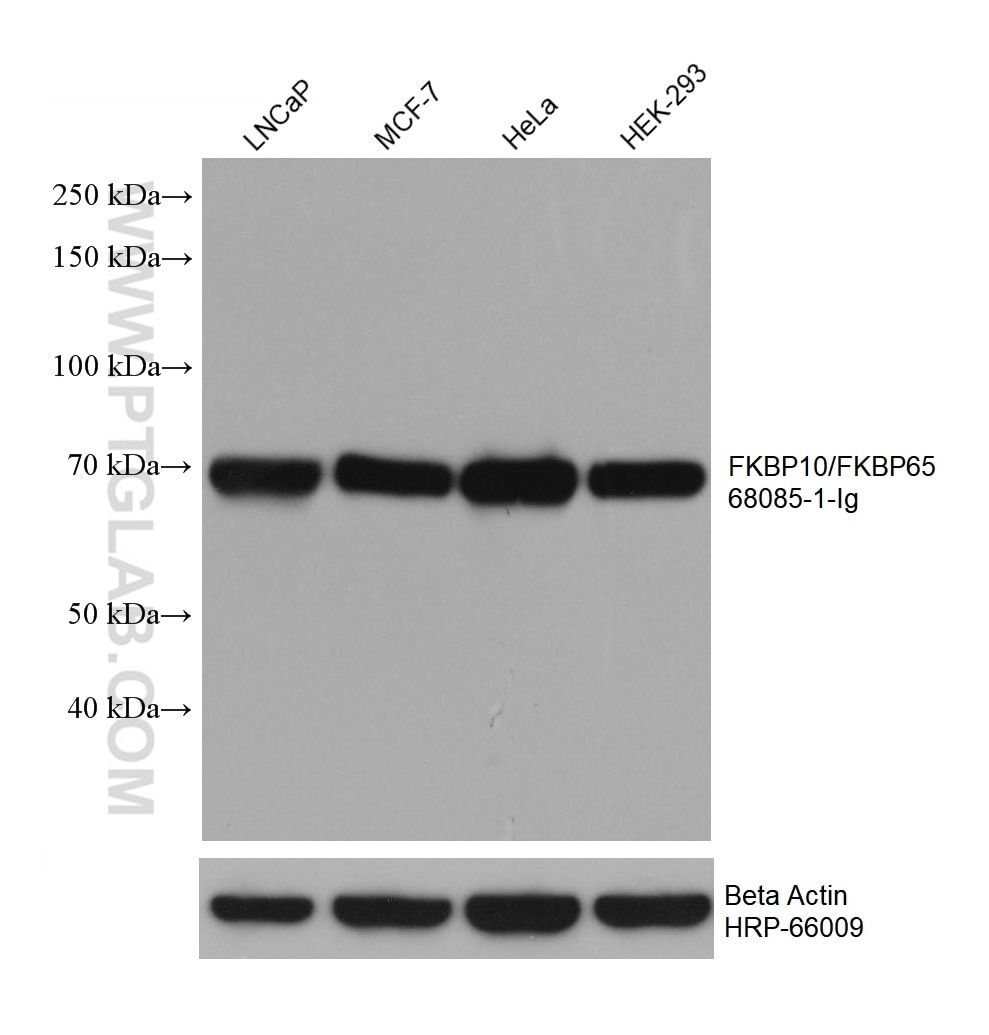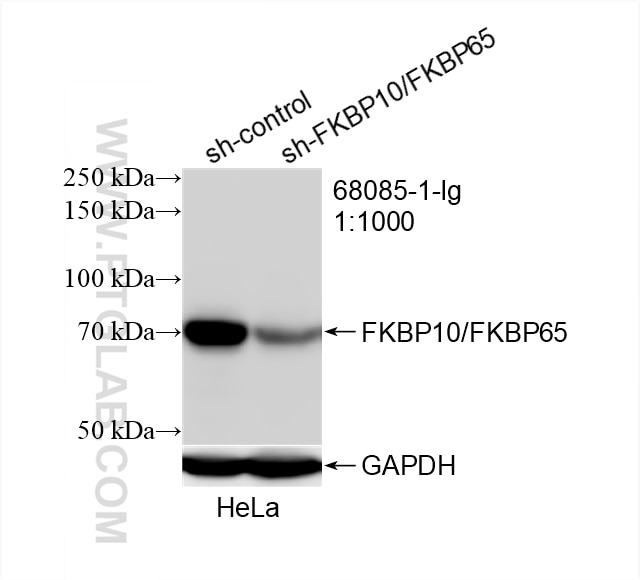Tested Applications
| Positive WB detected in | LNCaP cells, HeLa cells, MCF-7 cells, HEK-293 cells |
Recommended dilution
| Application | Dilution |
|---|---|
| Western Blot (WB) | WB : 1:2000-1:10000 |
| It is recommended that this reagent should be titrated in each testing system to obtain optimal results. | |
| Sample-dependent, Check data in validation data gallery. | |
Product Information
68085-1-Ig targets FKBP10/FKBP65 in WB, ELISA applications and shows reactivity with human samples.
| Tested Reactivity | human |
| Host / Isotype | Mouse / IgG1 |
| Class | Monoclonal |
| Type | Antibody |
| Immunogen | FKBP10/FKBP65 fusion protein Ag31628 Predict reactive species |
| Full Name | FK506 binding protein 10, 65 kDa |
| Calculated Molecular Weight | 582 aa, 64 kDa |
| Observed Molecular Weight | 64-70 kDa |
| GenBank Accession Number | BC016467 |
| Gene Symbol | FKBP10 |
| Gene ID (NCBI) | 60681 |
| RRID | AB_2918822 |
| Conjugate | Unconjugated |
| Form | Liquid |
| Purification Method | Protein G purification |
| UNIPROT ID | Q96AY3 |
| Storage Buffer | PBS with 0.02% sodium azide and 50% glycerol , pH 7.3 |
| Storage Conditions | Store at -20°C. Stable for one year after shipment. Aliquoting is unnecessary for -20oC storage. 20ul sizes contain 0.1% BSA. |
Background Information
FKBP10, also known as FKBP65, is a 65 kDa FK506 binding protein that is a member of the FKBP-type peptidyl-prolyl cis/trans isomerase family. This protein localizes to the endoplasmic reticulum and acts as a molecular chaperone and binding partner of type I collagen. FKBP65 is expressed in developing tissues and re-expressed in adult tissues following injury. As documented, FKBP10 has been detected to play important roles in the initiation and progression of cancers.
Protocols
| Product Specific Protocols | |
|---|---|
| WB protocol for FKBP10/FKBP65 antibody 68085-1-Ig | Download protocol |
| Standard Protocols | |
|---|---|
| Click here to view our Standard Protocols |





